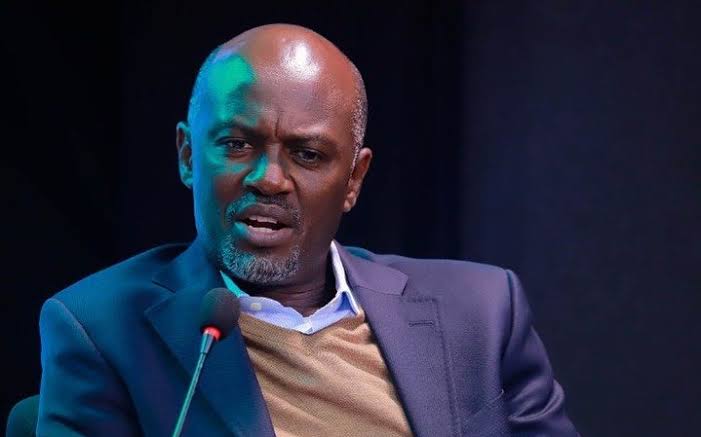Andrew Mwenda barks at EU: “This Is Neo-Colonial Arrogance”
European ambassadors in Uganda, whose governments are funding a genocide in Gaza, somehow find the moral authority to condemn torture here!

Veteran journalist and political commentator Andrew Mwenda has slammed European ambassadors in Uganda, accusing them of “neo-colonial arrogance” and meddling in Uganda’s internal affairs after they reportedly raised concerns over recent controversial tweets by Gen Muhoozi Kainerugaba, the Commander UPDF Defence Forces and senior presidential advisor.
The remarks came in the wake of a high-level diplomatic meeting between European Union envoys and Gen Salim Saleh in Gulu earlier this week. During the closed-door engagement, the EU delegation reportedly expressed discomfort with a series of provocative social media posts made by Gen Muhoozi, widely seen as a polarizing political figure and potential successor to President Yoweri Museveni.
In a sharply worded response shared publicly, Mwenda lashed out at what he described as a long-standing Western habit of moral grandstanding, accusing European powers of hypocrisy and a deep-seated racial superiority complex.
“European ambassadors in Uganda, whose governments are funding a genocide in Gaza, somehow find the moral authority to condemn torture here,” Mwenda wrote. “This is not about human rights. It is about power.”
He argued that the behavior of European diplomats mirrors historical colonial attitudes, framing their involvement in Ugandan affairs as a modern extension of imperial control under the guise of promoting democracy and human rights.
“This is colonialism 101,” Mwenda declared. “Colonialism justified itself with claims of seeking our emancipation… Today, Christianity has become democracy; commerce is now trade and investment; and civilization is the imposition of European bureaucratic systems.”
Mwenda’s fiery critique did not stop at foreign governments. He warned fellow Ugandans and Africans to be wary of what he termed externally orchestrated activism that undermines local legitimacy.
“When Europeans insert themselves in our struggles, they make local agency look like fifth columnists of foreign powers seeking regime change,” he said. “This undermines the legitimacy of local activism.”
The journalist further contrasted Europe’s behavior with that of countries like China, India, Japan, and South Korea, which offer support without what he described as condescension or interference.
“There are gross human rights abuses in Europe and North America but our ambassadors are not lecturing their leaders. What is it in the European mind that gives them the feeling and entitlement to interfere in our internal affairs?” he posed.
His comments have sparked intense online debate, with supporters praising his boldness and critics accusing him of deflecting from serious human rights concerns in Uganda.
The timing of Mwenda’s statement following the EU’s quiet but firm objections to Gen Muhoozi’s public conduct underscores the growing diplomatic unease around Uganda’s political transition, online discourse, and military influence in governance.
As 2026 approaches and Uganda’s political future hangs in the balance, Mwenda’s intervention reminds both Ugandans and foreign actors that the struggle for democracy here remains complex, fiercely local, and increasingly contested on the global stage.







